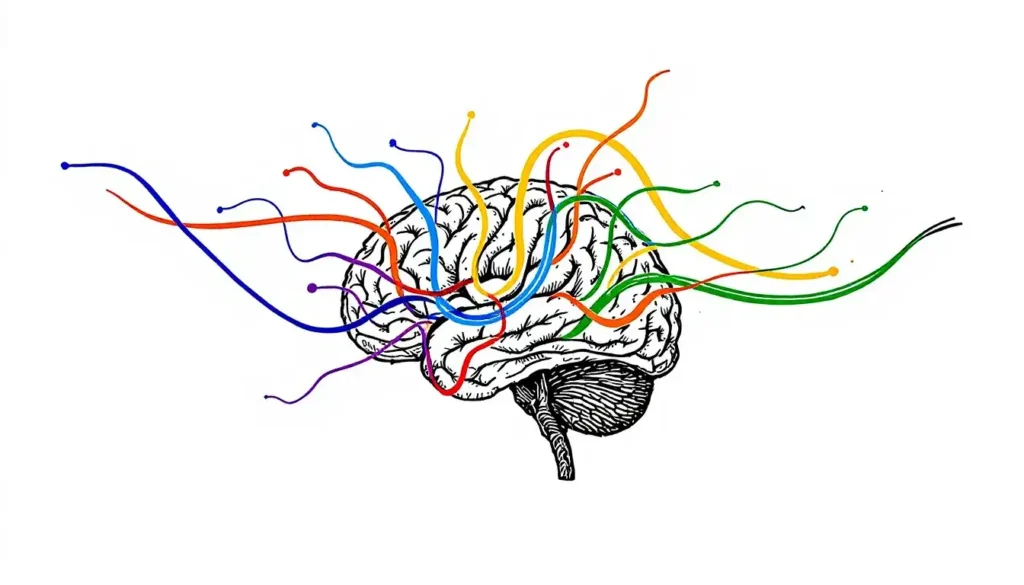Alcohol withdrawal usually lasts from a few days to a few weeks, starting within 6 hours after your last drink. Symptoms peak around 48-72 hours. Understanding “alcohol withdrawal” helps you prepare for the process.
Key Takeaways
- Alcohol withdrawal symptoms typically start within 6 to 24 hours after the last drink, with onset intensity influenced by factors such as age, gender, and alcohol use history.
- Withdrawal symptoms can last from 7 to 10 days, peaking between 48 and 72 hours, necessitating medical support during this critical period to manage both physical and psychological challenges.
- Structured aftercare post-detox is essential for long-term recovery, as continued treatment significantly reduces the risk of relapse and supports sustained sobriety.
The Onset of Alcohol Withdrawal Symptoms

The onset of alcohol withdrawal symptoms can be startlingly swift. Symptoms often begin within six to twenty-four hours after the last drink, catching many off guard with their intensity. This rapid onset is caused by the overexcitation of the central nervous system, which has grown accustomed to the depressive effects of alcohol. Imagine your body, long reliant on a crutch, suddenly forced to stand on its own—this is the shock your nervous system undergoes when alcohol is abruptly removed.
Several factors influence when these symptoms start. Age, gender, health status, genetic makeup, and the history of alcohol use all play significant roles. For instance, a younger individual with a shorter history of alcohol use might experience withdrawal symptoms later than someone older with chronic heavy drinking habits.
Grasping these variables aids in predicting and handling withdrawal symptoms, allowing for a more personalized treatment approach.
Duration of Alcohol Withdrawal

Alcohol withdrawal is not a fleeting ordeal; it can span several days to weeks, testing the resolve of those determined to quit. Typically, withdrawal symptoms peak around 48 to 72 hours after the last drink. This peak period is often the most challenging, with symptoms at their most intense, requiring medical support to navigate.
For most individuals, alcohol withdrawal last between 7 to 10 days, though some may experience it for up to two weeks. In rare cases, symptoms of alcohol withdrawal can persist for several weeks, with 95% of individuals reporting symptoms lasting between two to eight days. Physical symptoms, such as hallucinations and disorientation, can be particularly distressing during severe withdrawal. Psychological symptoms, including anxiety and depression, often linger even after the physical symptoms have subsided.
Recognizing the duration of alcohol withdrawal helps set realistic expectations and prepares individuals for the recovery journey. Awareness that the most severe symptoms are usually temporary offers hope and encouragement. This highlights the need for medical supervision during this critical period to manage symptoms and ensure safety.
Stages of Alcohol Withdrawal
Alcohol withdrawal progresses through distinct stages, each with its own set of challenges. These stages are generally classified as mild, moderate, and severe. Recognizing these stages helps in understanding the progression and the appropriate interventions required at each phase, particularly in cases of alcohol withdrawal syndrome (AWS). Early detection and treatment of AWS can significantly decrease the risk of severe complications and improve patient outcomes. Identifying individuals at risk for developing AWS can help clinicians provide timely prophylactic treatment before severe symptoms occur.
In the mild stage, alcohol withdrawal is experienced by sweating and shaking. Anxiety typically appearswithin 6 to 12 hours after the last drink. The moderate stage, occurring 12 to 48 hours after cessation, includes more intense symptoms like increased heart rate and confusion.
The severe stage, manifesting 48 to 72 hours post-drink, can be life-threatening, with symptoms such as delirium tremens and alcohol withdrawal seizures. Each stage requires a thorough examination to offer a complete understanding.
Mild Symptoms
Mild symptoms of alcohol withdrawal typically begin 6-8 hours after the last drink, marking the initial stage of the body’s adjustment to the absence of alcohol. Common physical symptoms include headaches, sweating, and tremors. Though uncomfortable, these symptoms are often manageable and indicate that the body is beginning to detoxify.
Psychological symptoms such as anxiety and agitation are also prevalent during this stage. These mental disorders reflect the brain’s struggle to regain equilibrium without the central nervous system depressant effects of alcohol. Although generally less severe, these symptoms remain distressing and require attention to prevent escalation.
Moderate Symptoms
Withdrawals typically start to manifest within 12 to 48 hours after the final drink. These symptoms are usually considered moderate in intensity. This stage is characterized by more pronounced symptoms, including confusion and elevated body temperature. The peak timing for the worst moderate withdrawal symptoms occurs around 48 hours, making this period particularly challenging.
Individuals experiencing moderate withdrawal symptoms may also face increased heart rate and more severe withdrawal symptoms, including physical withdrawal symptoms. These symptoms persist longer and require vigilant monitoring to prevent escalation into severe withdrawal.
The medical issues linked with moderate withdrawal emphasize the need for a structured detox environment for effective health management.
Severe Symptoms
Severe withdrawal symptoms are the most alarming and typically begin 48-72 hours after cessation of alcohol use. During this stage, symptoms can last up to four days and include life-threatening conditions such as delirium tremens (DTs) and severe alcohol withdrawal seizures. DTs are characterized by delirium, changes in consciousness, and can be potentially fatal in 5-15% of cases.
Approximately 3-5% of individuals in withdrawal may experience DTs. Factors that increase the likelihood of experiencing DTs include older age, history of heavy alcohol use, previous episodes of DTs, poor liver function, and having severe initial withdrawal symptoms.
The sudden cessation of alcohol intake shocks the central nervous system disease, requiring immediate medical attention to manage these severe symptoms.
Factors Influencing Withdrawal Severity
Several factors significantly influence the severity of alcohol withdrawal symptoms. Chronic heavy drinking is a primary factor, with prolonged and excessive alcohol consumption increasing the likelihood of severe withdrawal symptoms. The frequency and quantity of alcohol consumption play critical roles in determining the severity of withdrawal.
Individual factors such as body chemistry, existing health conditions, and patient history also influence the onset and severity of withdrawal symptoms. Older adults and those with existing medical conditions are at increased risk for severe withdrawal symptoms. A history of previous withdrawal complications also raises the chances of severe withdrawal symptoms.
The withdrawal process becomes more complicated alcohol withdrawal and intense with polysubstance abuse.
What to Expect During Detox

Detoxification marks the initial step in managing alcohol withdrawal. It involves monitoring symptoms and offering medical support to tackle the physical and psychological challenges. Medical professionals gather comprehensive information to assess and manage the severity of withdrawal symptoms accurately.
Inpatient detox programs, such as those offered by Turning Point of Tampa, provide a safe environment with medical supervision during alcohol withdrawal. Such a structured environment is essential for those facing severe withdrawal symptoms, providing immediate and long-term care for safe detox navigation.
Outpatient treatment can often be effective for individuals with mild to moderate withdrawal symptoms.
Common Symptoms During Detox
Common physical symptoms during detox include headaches, insomnia, and gastrointestinal distress, reflecting the body’s efforts to eliminate toxins and adjust to the absence of alcohol. Physical signs like slurred speech and sleep disturbances may also appear, indicating the central nervous system’s reaction to withdrawal.
Psychological symptoms are equally significant during this phase. Insomnia and irritability are common, highlighting the mental strain of withdrawal. Managing these symptoms with medical care is essential for a safe and effective detox process. Recognizing and managing these symptoms aids individuals in navigating this challenging phase with better support and preparation.
When Is Detox Not Enough?
Detox alone rarely suffices for long-term recovery from alcohol addiction and dependance. Continued treatment should follow withdrawal management to enhance sobriety retention. Without ongoing treatment post-detox, the likelihood of sustained sobriety diminishes.
For successful recovery outcomes from an alcohol use disorder, a minimum of 90 days of ongoing care is recommended after detox. Comprehensive treatment programs combining various therapeutic approaches can support long-term recovery.
Support groups and counseling within aftercare programs are helpful for maintaining recovery and reducing relapse risk. Medications like Acamprosate and Disulfiram can be utilized after detox to help manage cravings and prevent relapse.
Treatment Options for Alcohol Withdrawal

Effective treatment of alcohol withdrawal symptoms demands a comprehensive approach. Programs like those at Turning Point of Tampa offer medically supervised environments essential for managing severe withdrawal symptoms, providing round-the-clock support to navigate challenging phases.
Pharmacological therapies with medications like Lorazepam effectively reducing symptoms and improving health. Early recognition and treatment are vital to prevent severe complications.
Addiction specialists stress the need for a structured and supportive treatment environment for successful outcomes.
Medication Assisted Treatment (MAT)
Medication Assisted Treatment (MAT) offers an holistic approach that combines medications with counseling and behavioral therapies to treat substance use disorders. Benzodiazepines are primarily recommended for managing withdrawal, reducing the severity of physical and psychological discomfort.
Carbamazepine serves as an alternative treatment for mild to moderate withdrawal. Long-acting benzodiazepines are often used initially to reduce withdrawal symptoms, offering a stable foundation for recovery.
Vivitrol (Naltrexone) helps prevent alcohol cravings and relapse, supporting long-term sobriety.
Long-Term Support and Aftercare
Sustained recovery usually necessitates a structured aftercare program post-detoxification. Relapse rates increase significantly without ongoing treatment and support post-detox. Planning for aftercare and relapse prevention is a key focus from admission to discharge.
Ongoing therapy is beneficial in preventing relapse post-detox. Many addiction specialists share experiences where collaboration between different healthcare disciplines significantly improved patient outcomes in alcohol detoxification.
Family involvement in therapy is essential, highlighting the need to address the familial context in addiction recovery.
Real-Life Examples and Case Studies
Alcohol Use Disorder (AUD) affects an estimated 76.3 million people worldwide and is associated with 1.8 million deaths annually. AUD is commonly seen in patients admitted for conditions like coma, seizures, dementia, and other neurological issues.

Recognizing various experiences with alcohol withdrawal and recovery aids in understanding the diverse challenges faced during this process.
Case Study 1: A 45-year-old man with a long previous history of heavy drinking experienced severe withdrawal symptoms, including hallucinations and tremors, lasting over a week. However, he successfully completed a medically supervised detox and engaged in ongoing support programs, demonstrating that recovery is possible with the right support.
Case Study 2: A 32-year-old woman showed moderate withdrawal symptoms such as anxiety and increased heart rate that peaked at 48 hours. She managed her recovery through outpatient therapy and a strong support network, highlighting the importance of community and professional help.
Case Study 3: A young adult with infrequent alcohol use faced mild withdrawal symptoms like sweating and insomnia. His experience illustrates that individual withdrawal experiences can vary significantly, leading to successful self-management with lifestyle changes and counseling.
Professional Insights and Reflections
Professionals in addiction medicine often encounter scenarios where treatment approaches may not yield expected outcomes, leading to a sense of uncertainty. Self-reflection among addiction professionals reveals insights into decision-making, underscoring the need for continuous learning.
Sharing personal experiences helps professionals relate to patients, become more compassionate and understanding treatment. Honest and transparent discussions about treatment challenges build greater trust between professionals and patients, enhancing the therapeutic relationship.
Cultural Touchpoints and Current Events
In recent years, societal attitudes towards quitting alcohol have been evolving. Discussions about alcohol abuse and its social implications have intensified, especially concerning mental health awareness and recovery narratives. Documentaries and media coverage since 2023 have highlighted the struggles of those with alcohol dependency and alcohol use disorder, building greater empathy and understanding within society.
Recent surveys show an increasing trend towards sobriety among young adults, influenced by social media movements promoting alcohol-free lifestyles. This shift reflects a broader cultural change towards healthier living and mental well-being.
The COVID-19 pandemic sparked discussions about the need for better support systems for withdrawal and recovery, with increased alcohol related medical problems in some demographics highlighting the importance of accessible and effective treatment.
Summary
In summary, understanding withdrawal from alcohol is a multifaceted process that involves recognizing the onset, duration, and stages of withdrawal symptoms. Each stage—mild, moderate, and severe—presents unique challenges that require tailored interventions. Factors such as chronic heavy drinking, individual health conditions, and patient history significantly influence withdrawal severity.
Effective treatment, including Medication Assisted Treatment (MAT) and long-term support and aftercare, are important for successful recovery. Real-life examples and professional insights underscore the importance of a comprehensive approach to treatment. As societal attitudes towards alcohol dependence continue to evolve, empathy and understanding remains essential. Remember, recovery is a journey, and seeking help is the first step towards a healthier, alcohol-free life.
Frequently Asked Questions
What is the timeline of alcohol withdrawal?
Alcohol withdrawal typically commences within eight hours after the last drink, with symptoms peaking between 24 to 72 hours later; however, some symptoms may persist for several weeks. It’s crucial to monitor for these symptoms closely for effective management.
How long does it take the body to fully detox from alcohol?
The body can take from a few days to several weeks to fully detox from alcohol, with individual factors influencing the duration. In some cases, withdrawal symptoms can persist for up to a month or even longer.
How long after they stop drinking can alcohol affect a person?
Alcohol can affect a person as withdrawal symptoms typically begin within 6 to 12 hours after the last drink, peaking between 24 to 72 hours, and may persist for weeks or even months.
How soon after stopping alcohol can withdrawal symptoms appear?
Withdrawal symptoms can appear as soon as six hours after the last drink and may continue to develop over a few days. It is important to monitor these symptoms closely.
What are the possible symptoms of alcohol withdrawal?
Alcohol withdrawal symptoms can vary from mild symptoms like sweating and shaking to severe conditions such as seizures and delirium tremens. It is crucial to seek medical attention for proper management if experiencing any withdrawal symptoms.

